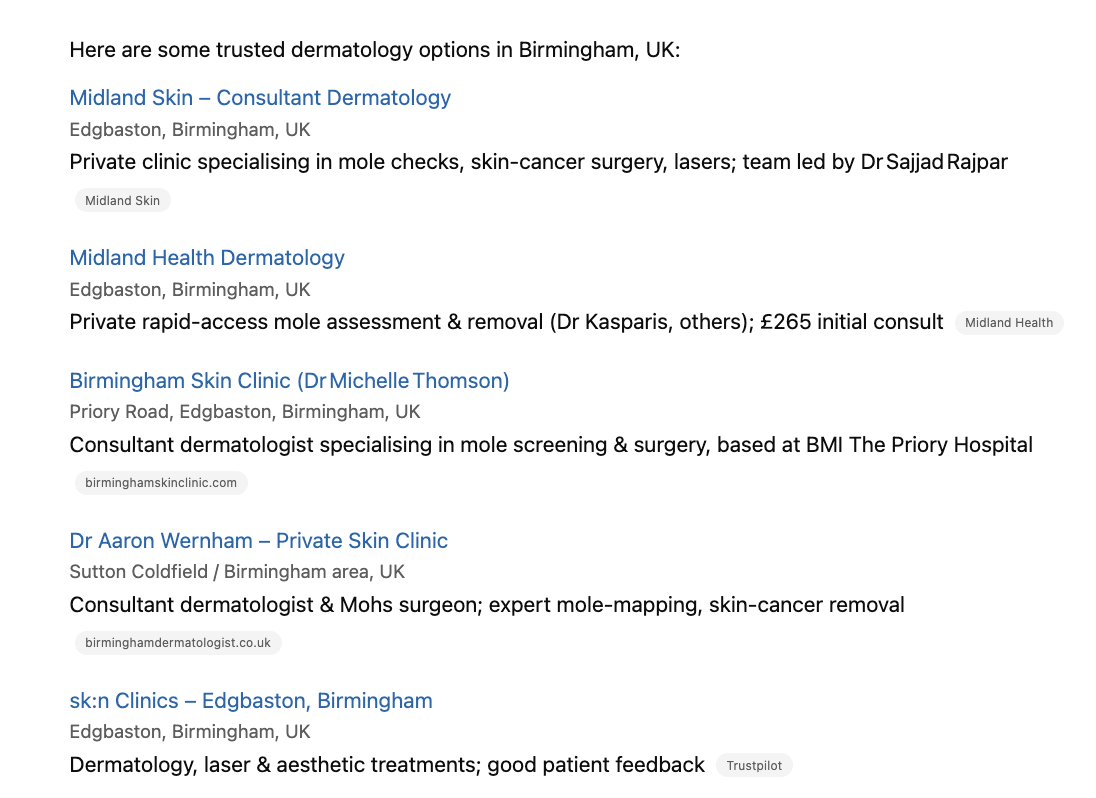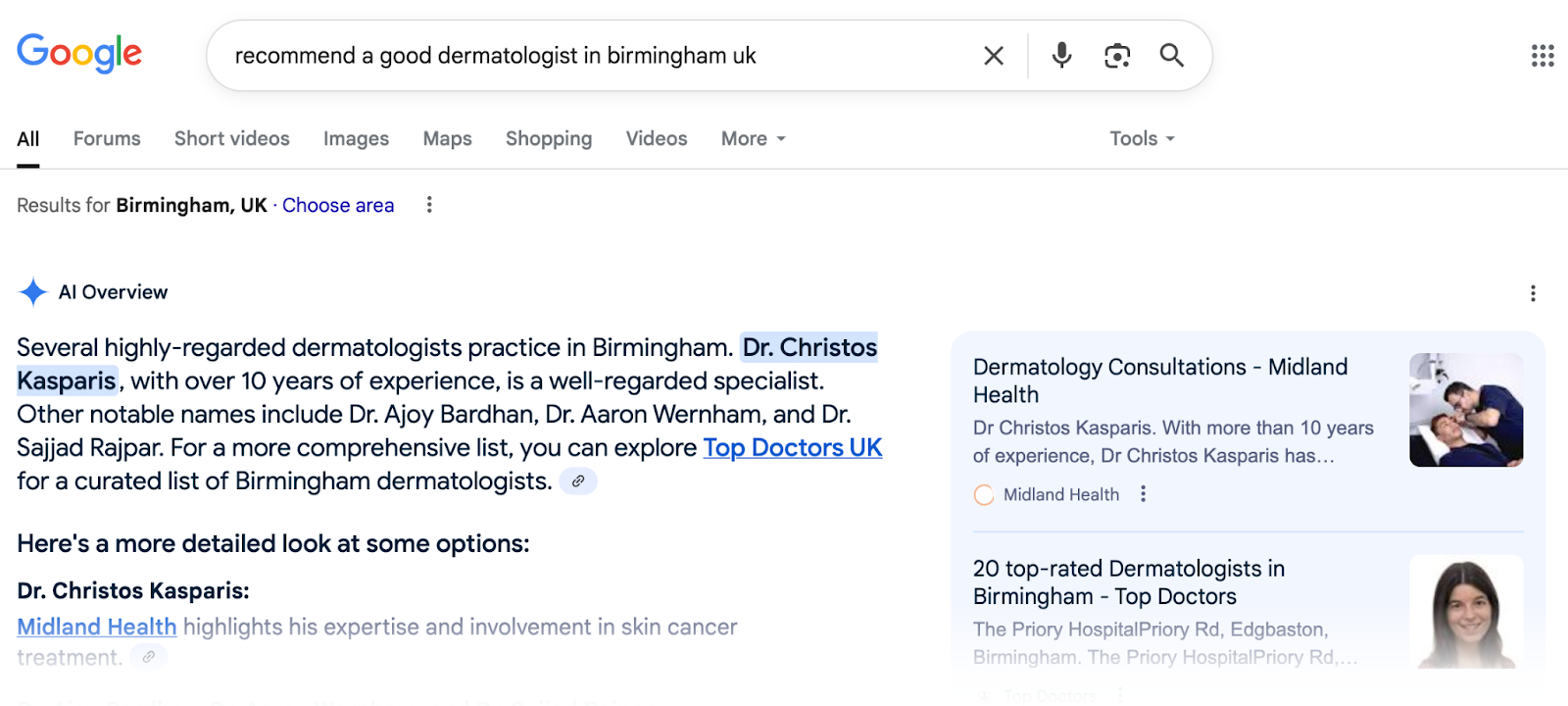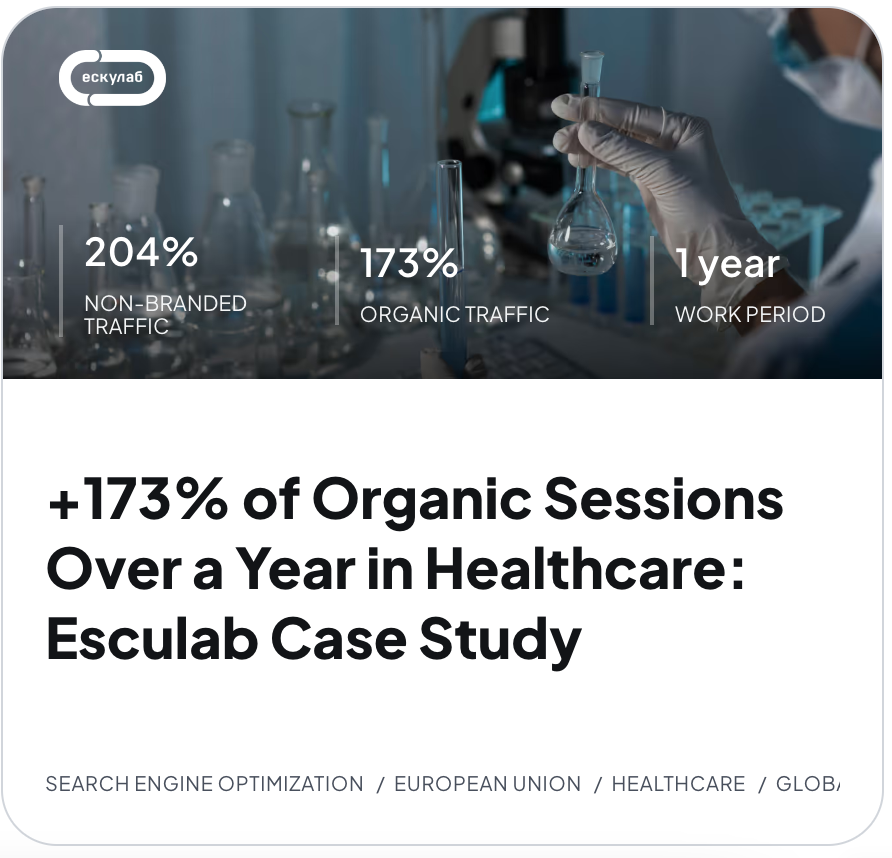Content

Large language models(LLMs) are now being used as assistants, therapists, and, increasingly, informal healthcare advisors. For better or worse, Chat GPT healthcare is definitely a thing now.
Studies show younger adults are especially likely to ask AI medical questions, sometimes even trusting their answers more than what they find on Google. Chat While these tools are powerful, their advice isn’t always accurate or safe—which is why the visibility of real, trustworthy medical sources has never been more important.
Learning how to get AI to recommend your clinic is no longer just about growing your business—it’s a public health responsibility. When your clinic shows up in AI-generated answers, you help ensure people get guidance backed by real expertise.
How can doctors use Chatgpt for healthcare lead generation and SEO? How could doctors use Chat GPT in healthcare to grow their practice and share valuable information? Stay with us to learn.
Let’s use a typical ChatGPT doctor prompt to find specialists in Birmingham.

As we can see, Chat GPT in healthcare pulls information directly from clinic websites and public listings.
Now let’s see what Google’s AI Overviews recommends:

Here we have even less options, the LLM just picked the top rated doctor from Top Doctors UK, and even provided a link to the clinic associated with the dermatologist. If we scroll a little bit, we can find other recommendations - mainly top rated professionals from the previous listing and Doctify. It also suggests various articles that list the most trusted professionals.

This supports what we already know about how medical Chat GPT gathers information—it favors reputation, trusted sources, and public feedback.
Read our article about healthcare online reputation management to learn more.
When someone uses ChatGPT for healthcare and asks, “Where can I find a good dermatologist in Chicago?” or “What’s the best way to treat chronic migraines?”, the answer they receive isn’t pulled from a traditional list of ranked websites, how it works in case of SEO for doctors. Instead, the AI generates a response by processing massive volumes of content, looking for information that is clear, current, and credible.
AI doesn’t “rank” results the way Google does. It builds responses based on patterns, context, and how well a piece of information fits the question. This shift is important for clinics: even a well-designed website may be left out if the content isn’t structured in a way AI understands—or if the clinic lacks digital trust signals.
AI tools evaluate content by how trustworthy and helpful it seems, not just by its keywords. Behind the scenes, the models break down text into small units (called tokens) and weigh them based on how naturally they fit together. They also check whether the information is supported by high-quality external sources and matches language that has been repeated and verified in reputable places.
If your clinic's content is vague, poorly structured, or not mentioned elsewhere online, it’s likely to be skipped entirely—regardless of how high it ranks on Google. This is especially relevant as we explore the growing use of ChatGPT in healthcare, where the accuracy and trustworthiness of content can directly impact medical decisions.
In health-related queries, trust is everything. AI systems are trained to prioritize content that meets EEAT standards:

These principles—originally developed by Google for ranking health and finance content—are now equally vital in the age of Chat GPT and medicine.
Publishing articles written or reviewed by licensed professionals, citing clinical sources, displaying credentials, and maintaining a consistent presence across verified platforms (like Healthgrades, WebMD, or government registries) all strengthen your clinic’s EEAT profile—and improve the odds of being recommended by Chat GPT and healthcare systems.
To understand how AI forms an opinion of your clinic, we can adapt the PESO Model©, created by Gini Dietrich. It breaks down your digital presence into four key areas:
According to a recent study by SE Ranking (2024), AI tools such as Google's AI Overviews rely most on earned and owned content—meaning articles written about your clinic in trusted publications and well-structured content on your own website. Shared and paid media (like social media posts or ads) have minimal influence, especially for sensitive topics like healthcare.
Let’s say your clinic is included in a U.S. News list of top pediatricians, or quoted in a New York Times piece on seasonal allergies. If those articles are referenced by Wikipedia, linked to from health forums like Reddit, or cited in Google’s top results—AI will likely prioritize your clinic as a credible recommendation.
Focus on being seen in the right places, not just on driving backlinks. Public relations and content quality now matter just as much—if not more—than traditional SEO tactics. For clinics looking to benefit from gpt in healthcare, this kind of online presence matters more than ever.
To make sure AI tools like Chat GPT for medicine, Google’s AI Overviews, and Gemini recommend your clinic, you need to shift from traditional SEO to a broader strategy: Healthcare AI Optimisation. This means structuring your online presence in a way that not only ranks in search engines but also feeds into ChatGPT medical research as a reliable, authoritative medical source.
Here’s how to do it step by step:
AI models prioritize content that is clear, well-organized, and trustworthy.
What to do:
AI systems—and Google—use EEAT (Expertise, Experience, Authoritativeness, Trustworthiness) to determine if health content is safe to recommend.
What to do:
AI understands content better when it’s grouped by subject.
What to do:
For example:
Parent page: Pediatric Care Services
Supporting articles: Vaccination Schedule by Age, When to Call a Pediatrician, Common Allergies in Children
AI favors clinics mentioned in high-authority sources like health publications, news outlets, and institutional databases.
What to do:
AI favors content that helps users solve specific problems.
What to do:
There’s no standard dashboard for AI visibility (yet), but there are ways to track how you’re doing.
What to do:
This is crucial if you want to benefit from emerging ChatGPT healthcare use cases.
7. Keep Your Reputation Consistent Across the Web
AI systems cross-check your identity and credibility using multiple sources.
What to do:
AI prefers content that is current and actively maintained.
What to do:
We may not have all the metrics yet to perfectly track AI visibility, but the direction is already clear. AI tools like Chat GPT in healthcare are quickly becoming a go-to source for health information, and clinics that adapt now will have a major advantage. By applying the steps we've covered, you're building the foundation for AI systems and potential patients to find and trust your clinic.

At Promodo, we’re already helping healthcare providers show up in Chat GPT for medicine responses and Google’s AI Overviews. If you want your clinic to stand out in this new digital landscape, we’re here to help. Let’s make sure you’re not just online, but the clinic Chat GPT and healthcare tools recommend first.
You may also like
Choose quality and trusted services to improve the presence of your company on the Internet, and feel free to contact our UK team if you have any questions.

87% of patients who discover healthcare providers online, schedule appointments.

Get tips on making the most of Google Local Service Ads to attract nearby customers and grow your business.

Assuming you’re on the receiving end of the story, do you know what your SEO expert should provide in these reports?

SEO is about how search engines like Google improve your real estate website’s ranking
We at Promodo are ready to help you improve your performance across all digital marketing channels.
Get started
